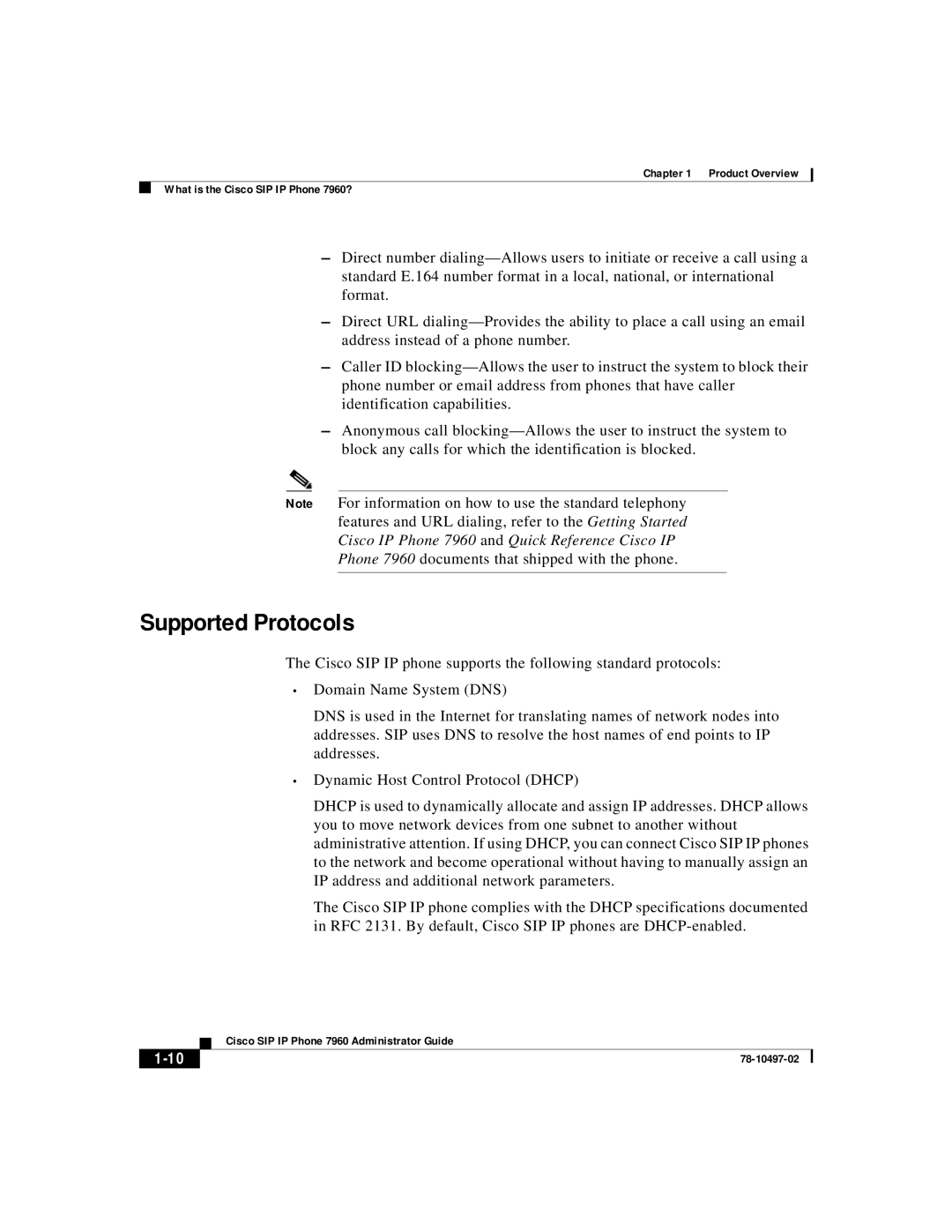
Chapter 1 Product Overview
What is the Cisco SIP IP Phone 7960?
–Direct number
–Direct URL
–Caller ID
–Anonymous call
Note For information on how to use the standard telephony features and URL dialing, refer to the Getting Started Cisco IP Phone 7960 and Quick Reference Cisco IP Phone 7960 documents that shipped with the phone.
Supported Protocols
The Cisco SIP IP phone supports the following standard protocols:
•Domain Name System (DNS)
DNS is used in the Internet for translating names of network nodes into addresses. SIP uses DNS to resolve the host names of end points to IP addresses.
•Dynamic Host Control Protocol (DHCP)
DHCP is used to dynamically allocate and assign IP addresses. DHCP allows you to move network devices from one subnet to another without administrative attention. If using DHCP, you can connect Cisco SIP IP phones to the network and become operational without having to manually assign an IP address and additional network parameters.
The Cisco SIP IP phone complies with the DHCP specifications documented in RFC 2131. By default, Cisco SIP IP phones are
| Cisco SIP IP Phone 7960 Administrator Guide |
